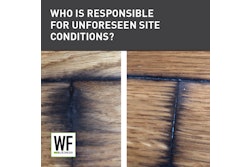
Contractors often spend hours discussing a new project with a customer before they sign a contract and commit to moving forward. Unfortunately, some customers still change their minds and back out before the contractor gets started. In other cases, the work starts but the customer turns on the contractor and fires them.
In both cases, the contractor has a claim for breach of contract damages. Under this legal theory, the non-breaching party is entitled to be put in the position they would have been if they had completed their contractual obligations. If a customer signs a contract but never allows the contractor to do work, the contractor’s damages would be the amount of its lost profit, i.e., how much profit would the contractor have made if the customer allowed the job to proceed? If the contractor has started work and is wrongfully terminated, the contractor’s claim would be payment for all labor or materials already provided, plus the remaining profit lost in not finishing the job.
While a written contract with detailed payment and default provisions is always recommended, a contractor has the above remedies even if no contract was signed. If the contractor can prove an agreement for a scope of work and price, the contractor could still pursue damages. Benefits of a signed contract include a provision allowing the contractor to recover attorneys’ fees and other costs in pursuing its damages. In most states, without a contract stating the contractor may recover its attorneys’ fees and costs, both sides must pay in a court proceeding. Since litigation can be expensive, the contractor’s attorneys’ fees could exceed the amount of its claim. For example, if the contractor’s lost profit was $10,000, it is probably not worth hiring a lawyer to sue the customer. However, most states have a form of “small claims” court where parties may pursue smaller claims in a simplified and expedited format without attorneys.
Another benefit of a written contract could be a “liquidated damages” clause. This clause states that if the customer wrongfully terminates, the parties have already agreed on the contractor’s damages. For example, the contractor might be entitled to 20% of the contract price. Therefore, if the contract price is $20,000 and the customer does not allow the contractor to proceed with the work, the contractor could easily prove a claim for $4,000. This is a more straightforward claim than attempting to prove the exact amount of profit the contractor might have earned on that project. State laws vary, but the foregoing should generally apply in all states.

































